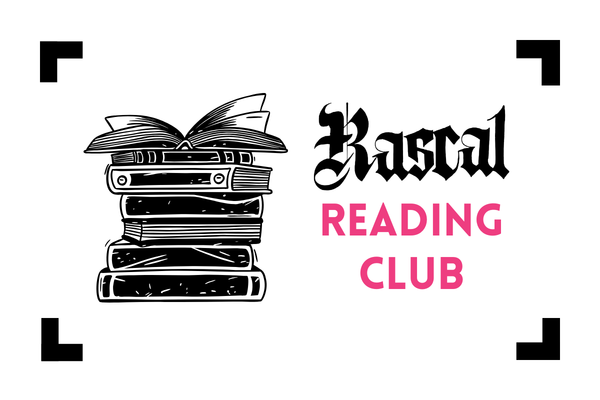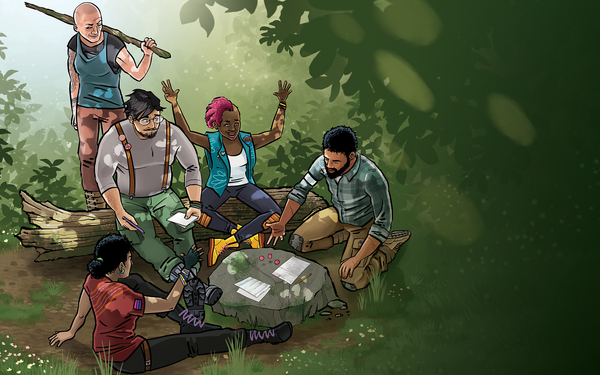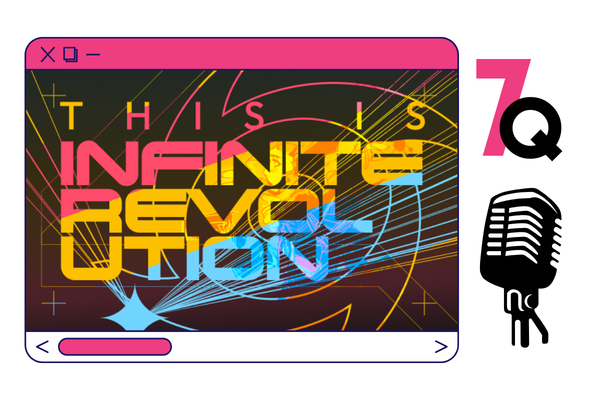Itch.io delists games under pressure from payment processors and an Australian anti-porn group [Updated]
Collective Shout’s campaign puts the digital platform against the proverbial wall.
![Itch.io delists games under pressure from payment processors and an Australian anti-porn group [Updated]](/content/images/size/w1200/2025/07/Rascal_Cover-1.png)
UPDATE 12:28 BST, August 1: A previous version of this article said itch.io "banned" some products, but the platform's owner later clarified otherwise. The article's headline has been updated to remove the word.
UPDATE 12:27 BST, July 29: itch.io has updated its original statement to add an adendum, addressing several broad questions about the platform's immediate future. Those seeking a big "fuck you" to payment processors, will be disappointed — itch.io instead claims it is seeking alternative payment processors while simultaneously rolling out strict age-gating on store listings. The platform's owners also claim they have not removed games from people's libraries.
Most telling is a recommendation to both users and creators that highlights itch.io's relative lack of power in the face of PayPal and Stripe: "Download and backup your games and don’t let any corporation dictate what you can own."
The original article continues below.
On July 24, popular digital game platform itch.io announced it would permanently remove an undisclosed number of titles containing explicit content, while substantially more would be delisted or shadowbanned in an upcoming “comprehensive audit.” Founder Leaf Corcoran explained in a developer post that the sudden and destructive policy shift was the result of Australian anti-pornography group Collective Shout’s pressuring itch.io’s payment processors.
Collective Shout recently claimed credit for the mass removal of sexually explicit, or otherwise NSFW, games on Steam as well as the ubiquitous video game platform’s new suite of strict moderation guidelines. According to PC Gamer, Valve (Steam’s parent company) directly cited compulsion from payment processors — credit card companies such as Mastercard and Visa, as well as PayPal — as a significant factor. Itch.io has claimed similar influence.
Below is Corcoran’s full statement:
We have “deindexed” all adult NSFW content from our browse and search pages. We understand this action is sudden and disruptive, and we are truly sorry for the frustration and confusion caused by this change.
Recently, we came under scrutiny from our payment processors regarding the nature of some content hosted on itch.io. Due to a game titled No Mercy, which was temporarily available on itch.io before being banned back in April, the organization Collective Shout launched a campaign against Steam and itch.io, directing concerns to our payment processors about the nature of certain content found on both platforms.
Our ability to process payments is critical for every creator on our platform. To ensure that we can continue to operate and provide a marketplace for all developers, we must prioritize our relationship with our payment partners and take immediate steps towards compliance.
This is a time critical moment for itch.io. The situation developed rapidly, and we had to act urgently to protect the platform’s core payment infrastructure. Unfortunately, this meant it was not realistic to provide creators with advance notice before making this change. We know this is not ideal, and we apologize for the abruptness of this change.
We are currently conducting a comprehensive audit of content to ensure we can meet the requirements of our payment processors. Pages will remain deindexed as we complete our review. Once this review is complete, we will introduce new compliance measures. For NSFW pages, this will include a new step where creators must confirm that their content is allowable under the policies of the respective payment processors linked to their account.
Part of this review will see some pages being permanently removed from itch.io. Affected accounts will be notified via their account’s email address from our support address. You can reply to that email if you have any follow up questions.
We ask for your patience and understanding as we navigate this challenging period. I’m sorry we can not share more at this time as we are still getting a full understanding of the situation ourselves. We will post a follow up on our blog if the situation changes.
Thank you.
itch.io/updates/upda...
— itch.io (@itch.io) 2025-07-24T06:19:25.907Z
Rascal has heard from tabletop designers that their games no longer show up in direct searches or storefronts once the “adult” or “NSFW” tag is added. Others claim itch.io is already denying payouts on affected products. The Transfeminine Review reported multiple novels by trans authors were removed, and more were delisted based on author-supplied tags. We have reached out to the platform for confirmation and more details but did not hear back prior to publication. The uneven and stuttering rollout may be due to its sudden nature. Corcoran’s statement implies their team received very little notice from payment processors and are complying as quickly as possible, which would explain the lack of courtesy notices sent to affected creators.
Collective Shout has previously targeted sexually explicit art under the guise of a self-described “pro-life feminist” mission of protecting women and children from “harmful” depictions in art. The group previously helped bar Tyler, the Creator from a musical tour, and unsuccessfully attempted similar bans on Snoop Dogg and Eminem. They sought to remove from Australian retail stores Grand Theft Auto 5 (which worked) and Detroit: Become Human (which didn’t). The group has yet to directly claim credit for itch.io’s policy changes.
One of the first journalists to cover Collective Shout’s threat to digital and analog games, Ana Valens, reported on Collective Shout’s crusade but had her articles edited or removed by Waypoint’s owner, Savage Ventures without any explanation. Valens recently resigned from her contract writer position and was followed by her fellow writers, Shaun Cichacki and Matt Vatankhah, and Waypoint’s only full time staff member — managing editor Dwayne Jenkins.
In 2021 I warned itchio could one day face payment processor censorship. Many people thought I was creating drama by “attacking” the company Four years later, here we are. I was right, unfortunately archive.is/nxbzh
— Ana Valens | 🔞 (@acvalens.net) 2025-07-24T02:03:48.613Z
Regardless of Collective Shout’s ostensible goals, the fallout has seen countless creators’ livelihoods threatened over the inclusion of sexual material. Steam’s new policies were applied unevenly and imperfectly, leaving egregious titles unscathed while catching unsuspecting developers in the collateral. Itch.io has long served as a bastion for games, novels, and other artwork that couldn’t be sold on other digital platforms due to content policies — indeed, its legacy is that of the unintended safe haven for queer and trans creators, along with erotic art in general. Now, that legacy faces a dire threat.
The story of Australian moral panic protest pressuring American payment companies into censoring online art is also (somehow) a prescient encapsulation of how shitty the modern internet has become. Consolidation and platform supremacy has forced us to rely on understaffed and overworked teams to maintain ad-hoc infrastructure. It is difficult to imagine a different world while the current one crumbles, but what else can we do? Watch as Mastercard strangles lo-fi, scrappy smut off our computers? They’re not worth your fear, but they are worthy targets for your rage.
Corcoran and their team aren’t left with too many options in this situation. The company holds a fraction of Steam’s market share. The team has historically struggled to keep up with the site’s explosive growth — and its contemporary retrofit as a charity crowdfunding network. While the company’s financials aren’t public, it’s likely that itch.io simply couldn’t survive payment companies' shutting them out. The near-monopoly of financial institutions, and their apparent reactionary moral posture, is a frankly massive threat to the existence of free artistic expression on the internet. Speaking bluntly, a bunch of puritanical freaks did not force Discover and PayPal to do anything. They chose to hold a knife to Valve’s throat until it squealed because capital’s largest players have been eagerly awaiting their opportunity to contribute to modern fascism.
It’s difficult to gauge the extent of harm this will cause tabletop RPGs hosted on itch.io until the team completes its audit and implements new content policies. Creators aren’t left with many other ports to escape the growing storm of economic censorship, at least none with the reach and previously available content latitude. But then, that’s the point: instead of outright burning books in the street, fascist actors will cloak themselves in the goal of protecting children (ask any sex worker about the history of that canard) and close the internet block-by-block through state-specific pornography bans and online safety legislation.





